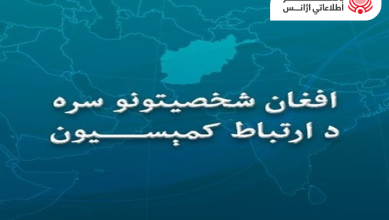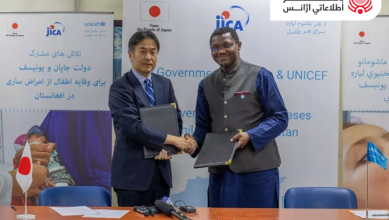
Sunday, September 24, 2017
Kabul (BNA)
Mr. Chairman,
Ladies and Gentlemen,
Please allow me to begin thanking you for convening this year’s annual coordination meeting, and the Government of Turkey for its able chairmanship of the OIC.
I join colleagues in also commending OIC Secretary General Dr. Yousef Ahmed Othaimeen for his productive leadership of our organization.
A glimpse at the Islamic world shows that daunting challenges still undermine peace and stability in our societies.
Consequently, millions of Muslims around the world are yet to realize the fundamental right to live in an atmosphere of peace, security and stability.
Thus, Afghanistan believes that the unity of Islamic countries is of fundamental importance and a pre-condition for improving the plight of our peoples.
This imperative was a central theme in the outcome of the 13th OIC Summit, on which we must deliver.
In this connection, the adoption of the OIC-2025 Ten-Year Program of Action set in place an effective framework of cooperation on a wide range of priority areas.
These include the combat against terrorism; promotion of peace and security; eradication of poverty; and strengthening of intercultural and inter-faith harmony, which the tenets of Islam strongly support.
We urge concerted effort by all OIC member-states to consider and support the implementation of the new Program of Action as an effective way to improve conditions of Muslims around the world.
Success in this endeavor would automatically benefit non-Muslim citizens of our global village where peaceful co-existence is a precondition for ensuring common prosperity.
Esteemed Colleagues,
International terrorism stands high among the dominant challenges in the Islamic world.
In our view, OIC’s efforts in combatting terrorism can be more effective, if conducted in a spirit of greater unity and harmony among all member-states.
Foremost, we strongly condemn instrumentalization of Islam to drive terrorist campaigns in the Afghan and other contexts.
Islam stands for peace, co-existence, tolerance, consensus and dialogue to maintain the welfare of Muslims and others.
Prophet Muhammad’s diplomacy rested on these ethos, inviting millions to shed ignorance in favor of the right path.
His message was peace, not war, terror, and destruction. Unfortunately, many have deviated from the right path, undermining the teachings of our book and Prophet.
It is this deviation that drives violent extremism and terrorism, victimizing destitute nations like Afghanistan.
It too causes sectarian cleavages that get exploited by state and nonstate actors to target innocent civilians.
In the latter case, we believe a reinvigorated effort by scholars of both sects of our religion is needed to preserve and strengthen the unity of Islam.
In the former case, our counter-terrorism efforts and cooperation fall short and must be bolstered.
Our national self-interest shouldn’t be the only reason for doing more but we must deliver on our moral obligations to meet the promise of our peaceful faith.
At the same time, ensuring a more effective and coordinated effort in countering terrorism will also correct the many misperceptions about Islam and its vast growing community of followers on very world continent.
Afghanistan welcomes the launch of the “Islamic Rapprochement
Process” at the initiative of Presidents Recep Tayyip Ordogan and Nursultan Nazarbayev of the Republics of Turkey and
Kazakhstan last year.
We should make full use of this and other initiatives to foster a more collaborative environment among all Muslim countries, based on sentiments of goodwill, solidarity, brotherhood and a shared endeavor to strengthen our unity and advance our common cause.
Mr. Chairman,
Over recent weeks, we have seen the plight of Rohingya Muslims severely deteriorate with a new wave of killings, persecution and expulsions carried out by the military authorities in Myanmar.
Afghans have strongly condemned these atrocities and remain concerned about this grave humanitarian crisis.
We in the OIC have a collective responsibility to act beyond just expressions of support in the face of the brutal campaign committed against innocent Rohingya.
The outcome of the OIC Contact group meeting, earlier this week, was an important step forward for an effective response.
We now need to take decisive action, in collaboration with the broader international community, to end the suffering of Rohingya Muslims and to improve their overall situation.
Moreover, we must renew our focus on the unsettled question of Palestine.
Achieving a lasting settlement to the question of Palestine can provide a strong basis for increased security and stability in the wider region.
We continue to maintain that the political impasse in negotiations between the Palestinian and Israeli authorities will not be overcome, unless the international community takes new steps to re-generate an environment conducive for the resumption of direct talks for a two-State solution.
Afghanistan has always stood in full support of the realization of the aspirations of the Palestinian people, including the right to an independent Palestinian State.
This is reflected by our long-standing role in serving as the Vice Chairman of the Committee on the Inalienable Rights of the Palestinian People, here at the UN.
We also hope that current efforts aimed at a peaceful and comprehensive solution to the situation in Syria, which meets the aspirations of all Syrians and leads to long-term political stability in that country, will soon bear fruit.
Moreover, the OIC should remain proactively engaged to address the humanitarian needs of the Syrian people, in tandem with the international community.
Mr. Chairman,
On the situation in Afghanistan, three years have passed since the establishment of the National Unity Government.
We are still grappling with the threat of terrorism as the main challenge confronting Afghanistan’s security and stability.
Today, despite many problems, our security forces are leading the fight against 20 transnational terrorist groups, whose barbarity and carnage spare none in our society.
The attacks on hospitals; areas densely populated by ordinary civilians; and on our State, religious, educational and cultural institutions are all too common, bringing pain and anguish to the lives of our people.
Over the past year, terrorists groups led by the Taliban have increased attacks, with a new focus on stoking ethnic and religious strife among our people.
This is manifested by deliberate attacks on mosques and religious gatherings, even during times of prayer.
Nevertheless, Afghans, who take timeless pride in our ethnosectarian pluralism, will never be provoked by such designs.
In a strong display of unity, leading scholars from both sects of Islam recently reaffirmed their condemnation of all terrorist attacks, and underscored unity as our foundation of national response to defeat terrorism.
Meanwhile, efforts to make our institutions more accountable and effective, through a comprehensive reform agenda continue with priority.
We are also focused on preparations for upcoming parliamentary elections next year.
The transparency and integrity of our elections underpin electoral reforms.
The composition of the independent electoral and complaints commissions are now complete, and we have begun discussions with relevant international partners to finalize arrangements for funding of the upcoming polls.
We have also taken new measures to enhance the nature and scope of our cooperation with regional and international partners.
Through the Kabul Process, launched by His Excellency President Ghani in June, we seek to reinvigorate the peace process and to strengthen the framework of regional cooperation in combating terrorism, radicalization, and criminality.
In this regard, we have reminded the Taliban that the window of opportunity to embrace peace will not be open forever.
The choice is theirs to abandon terrorism and accept peace, or face a decisive defeat on the battlefield.
We thank the OIC for its readiness to help convene an International Muslim Ulema Conference, with the assistance of the Kingdom of Saudi Arabia, in support of peace in Afghanistan.
We hope a date for the Conference will be determined soon.
We believe a successful outcome of such a gathering could reinforce the Islamic world’s rejection of terrorism and violent extremism, as a violation of our peaceful faith.
In the broader context, the OIC has been a fervent supporter of peace, stability and development in our country, for which Afghanistan is grateful.
Through its specialized agencies, it has rendered assistance for Afghanistan’s socio-economic development, including provision of requisite support in the areas of health, education and support for Afghan refugees and internally displaced persons.
In February of this year, the International Contact Group Meeting on Afghanistan met in Jeddah.
That meeting encouraged the OIC and its member-states to play a more results-oriented role in helping ensure peace and stability in our country.
As we move forward, we look to the OIC and the Islamic world to continue your support, enabling us to consolidate our hard-earned gains of the past 17 years.
Mr. Chairman,
In less than a month from now, the General Assembly will vote to elect new members of the Human Rights Council (HRC).
Afghanistan’s candidacy to that forum is based on our firm commitment to advancing the human rights agenda worldwide, and the principles of the Universal Declaration of Human Rights.
We will rely on the support of all brotherly countries present here for our candidacy.
Let me end by reiterating that the OIC stands at an important juncture in our effort to overcome the many pressing challenges facing the Muslim world. This requires us all to further enhance inter-OIC cooperation with a new sense of urgency, taking into account the mounting demands and expectations of millions of Muslims around the world.
Thank you.
Yarzada




